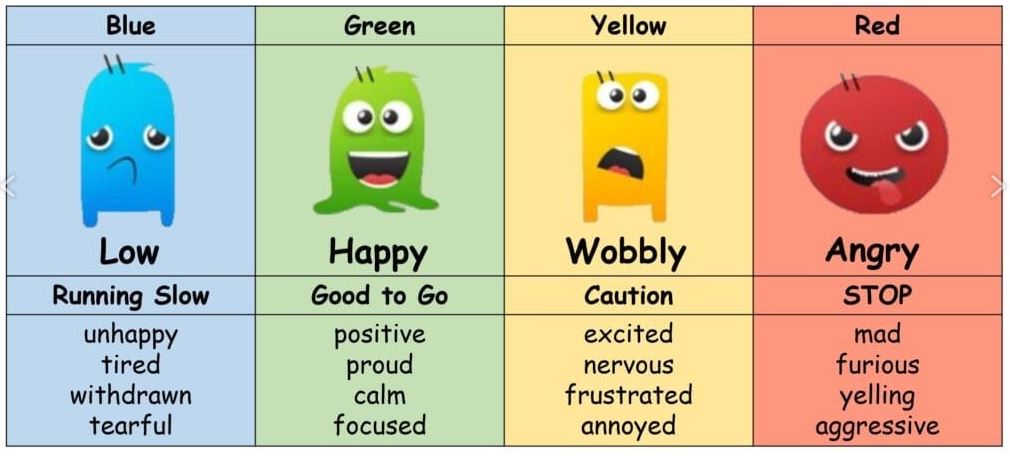Zones of Regulation
At Buckden C of E Primary Academy, we recognise the importance of promoting positive mental health and emotional wellbeing to our students and their families. We aim to create an open culture around the discussion of mental health and wellbeing and to empower our children be able to regulate their emotions. By implementing the Zones of Regulation curriculum we aim to teach our pupils to identify emotions in themselves and others and provide them with bank of strategies to help regulate their emotions and improve their wellbeing.
The Zones of Regulation is a range of activities to help your child develop skills in the area of self-regulation. Self-regulation can go by many names, such as self-control, self-management and impulse control. It is defined as the best state of alertness of both the body and emotions for the specific situation. For example, when your child plays in a basketball game, it is beneficial to have a higher state of alertness. However, that same state would not be appropriate in the library.
The Zones of Regulation is a curriculum based around the use of four colours to help children self-identify how they’re feeling and categorise it based on colour. The curriculum also helps children better understand their emotions, sensory needs and thinking patterns. The children learn different strategies to cope and manage their emotions based on which colour zone they’re in. Additionally, the Zones of Regulation helps children to recognise their own triggers, learn to read facial expressions, develop problem-solving skills, and become more attuned to how their actions affect other people.
There is progression across the curriculum with children in Early Years learning to identify different emotions to children in Upper Key Stage 2 discussing how our behaviour can impact upon the feelings of those around us.
Zones of Regulation
Please read our guide to the Zones of Regulation at the bottom of the page. If you have any questions, please ask your a member of staff in the Home School Hub.
Understanding the Zones:
Click on the title below the image to take you to that zone


